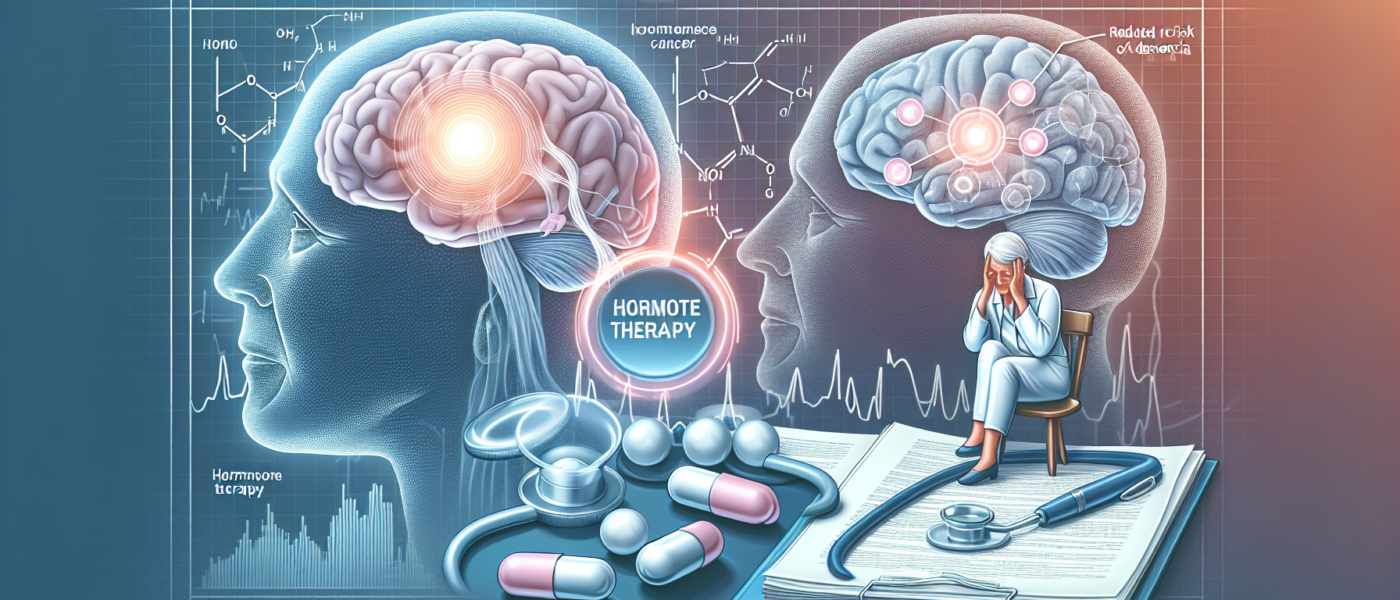Hormone Therapy for Breast Cancer May Reduce Dementia Risk, Study Finds
Hormone Therapy for Breast Cancer Linked to Lower Dementia Risk
Study Reveals Encouraging Findings
Hormone Modulating Therapy (HMT) is a cornerstone in treating breast cancer, primarily for tumors classified as hormone receptor-positive, which thrive on estrogen or progesterone. Recent research has uncovered an unexpected benefit of HMT, showing a reduction in the risk of Alzheimer’s disease and related dementias. This significant finding could reshape the therapeutic landscape, offering hope beyond cancer treatment.
The study employed a federal database to track 18,808 women aged 65 and older, diagnosed with breast cancer between 2007 and 2009. Among them, 66% received HMT within three years following their diagnosis, while the remaining 34% did not. The analysis revealed that HMT users had a 7% lower chance of developing Alzheimer’s and related dementias. The average follow-up period of 12 years solidified the credibility of these results, with 24% of HMT recipients versus 28% of non-HMT recipients being diagnosed with dementia.
Complex Mechanisms and Racial Disparities
While the precise mechanisms linking HMT to a reduced risk of dementia remain unclear, hypotheses include estrogen’s neuroprotective role, its modulation of estrogen receptors, and its impact on beta-amyloid clearance and tau protein stability. This burgeoning area of research underscores the necessity for continued exploration to elucidate these potential connections. Understanding these mechanisms could lead to improved treatment protocols and preventive strategies.
The study also highlighted significant racial disparities, with Black women experiencing higher rates of breast cancer and poorer outcomes, potentially due to structural racism and societal inequities. These findings stress the urgent need to address these disparities and ensure equitable healthcare access and treatment for all racial groups. By doing so, we can move closer to achieving health equity and improving outcomes across diverse populations.
Individualized Approaches and Study Limitations
In clinical practice, individual patient factors are critical when prescribing HMT or formulating breast cancer treatment plans. Each patient’s unique medical history, genetic makeup, and additional contextual factors must be considered to optimize treatment efficacy and minimize risks. This personalized approach can significantly enhance patient care and outcomes, offering tailored solutions rather than a one-size-fits-all methodology.
The study primarily focused on women aged 65 and older, leaving a gap in understanding how HMT affects younger women, particularly those who have not yet reached menopause. Future research aims to include younger demographics to provide a more comprehensive picture of the HMT-dementia risk link. Additionally, ongoing investigations are required to examine if different HMT types—selective estrogen receptor modulators, aromatase inhibitors, and selective estrogen receptor degraders—vary in their impact on dementia risk.
Future Research Directions
The findings from this study act as a catalyst for further research, offering promising avenues for deeper exploration. Scientists and clinicians are keen to unravel the complex relationship between hormone modulating therapy and dementia risk, aiming to provide clearer and more precise guidance on HMT usage. Understanding these connections not only advances breast cancer treatment but may also contribute significantly to dementia prevention strategies.
In conclusion, while the association between hormone therapy for breast cancer and lower dementia risk is compelling, continuous research is essential to validate these findings and clarify underlying mechanisms. With rigorous inquiry and a commitment to addressing disparities, this area of study holds the potential to revolutionize treatment protocols and enhance patient outcomes on multiple fronts.
